Take Five with Chef Douglas Keane of Michelin-Starred Cyrus, On His Revealing New Memoir “Culinary Leverage”
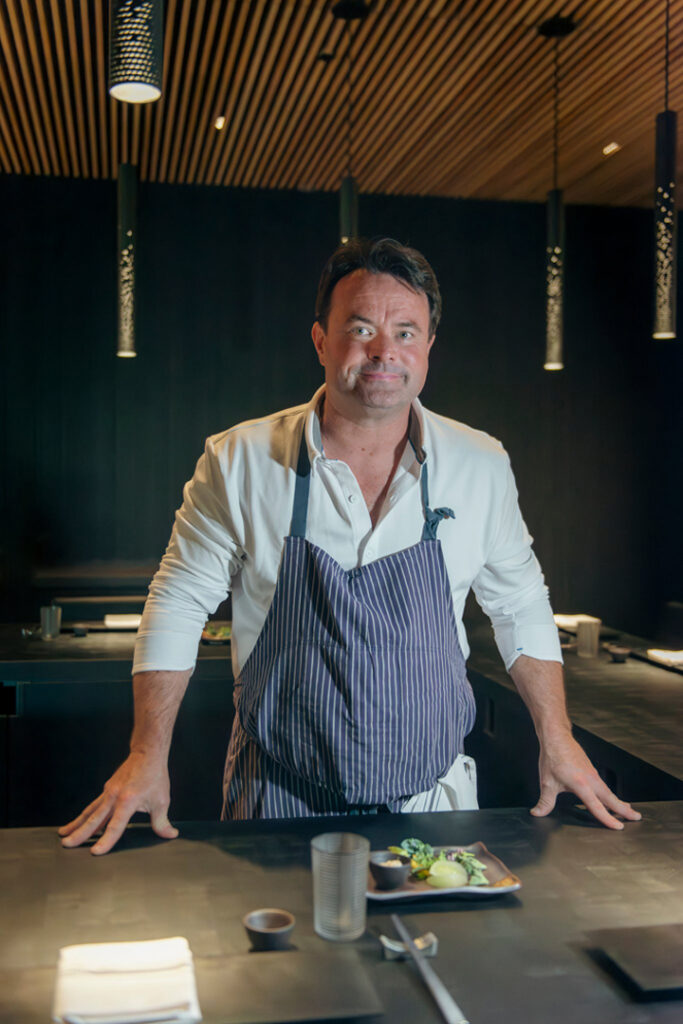
You may know Chef Douglas Keane as a victor of “Top Chef Masters,” and the owner of Michelin-starred Cyrus in Geyserville. You may even know the brutal ups and downs he faced when the original Cyrus closed in Healdsburg in 2012 following a landlord dispute and his ensuing 10-year struggle over five different properties to reopen the restaurant in a new location.
Despite all of that, Keane, his 20-year business partner Nick Peyton, and longtime chef Drew Glassell, managed to bring that vision to fruition to open the new Cyrus in 2022 in a modern glass, steel, and concrete building among vineyards on the grounds of what was once the home of a Sunsweet prune packing plant.
Through that whole ordeal, he was also busy writing a memoir, “Culinary Leverage’‘ (Koehler Books), which debuts Feb. 25.
It is at points illuminating, frank, brave, jarring, and hilarious. And yes, there are even a handful of recipes included at the end. I had a chance to chat with Keane about his reasons for writing the book, and on revealing so much about himself and the restaurant industry.
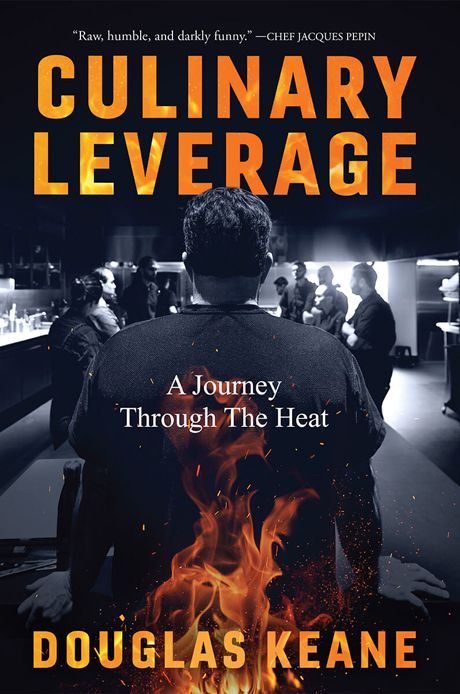
Q: What made you want to write this book?
A: At first, I just thought I had some interesting stories to tell, that a lot of weird shit had happened to me that I should just put down. But everyone’s story is unique, so that’s not what this became about. I wrote the book to make changes in the industry, to illuminate why I got to the dark, weird places.
Q: There are definitely some very dark and intense moments in this book, especially at the start of it, which will surprise people. Did you think twice about including those?
A: I didn’t care about anonymous people reading all of this. It wasn’t until friends asked for the book that I thought, ‘F—k, they’re going to read this.’ Nobody knew how dark some of these moments were. Lael (his ex-wife) didn’t know. I had to tell her. I gave Nick a copy of the book without warning him. He came in the next morning, and we had a private moment. Same with Drew.
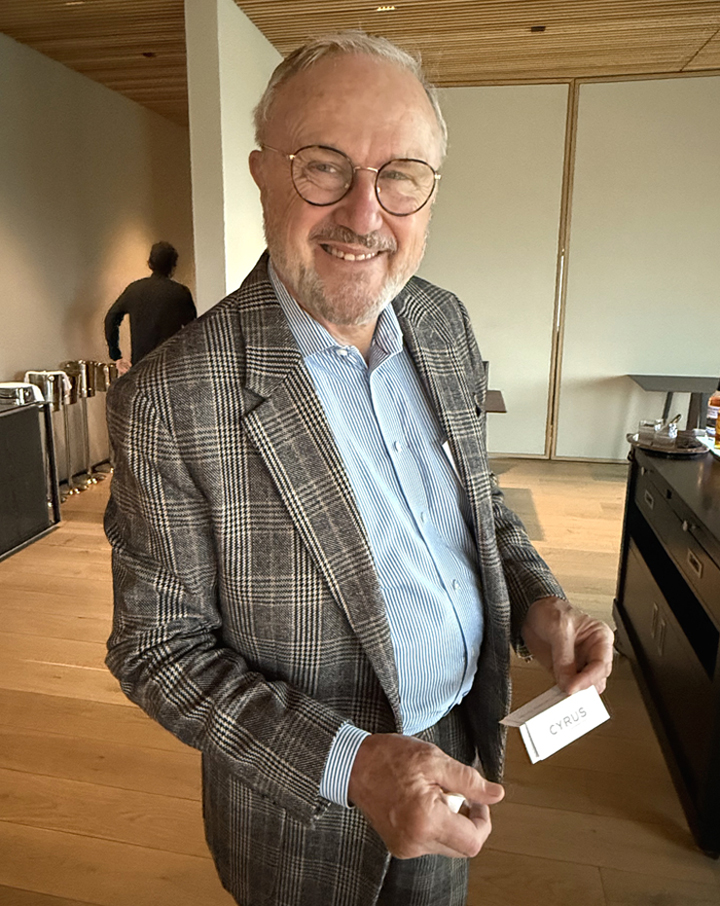
Q: You worked on the book for four years?
A: Yes. Once I got going, it really went fast. I finished most of it before Cyrus opened in 2022. But there wasn’t a reason to release it until Cyrus opened.
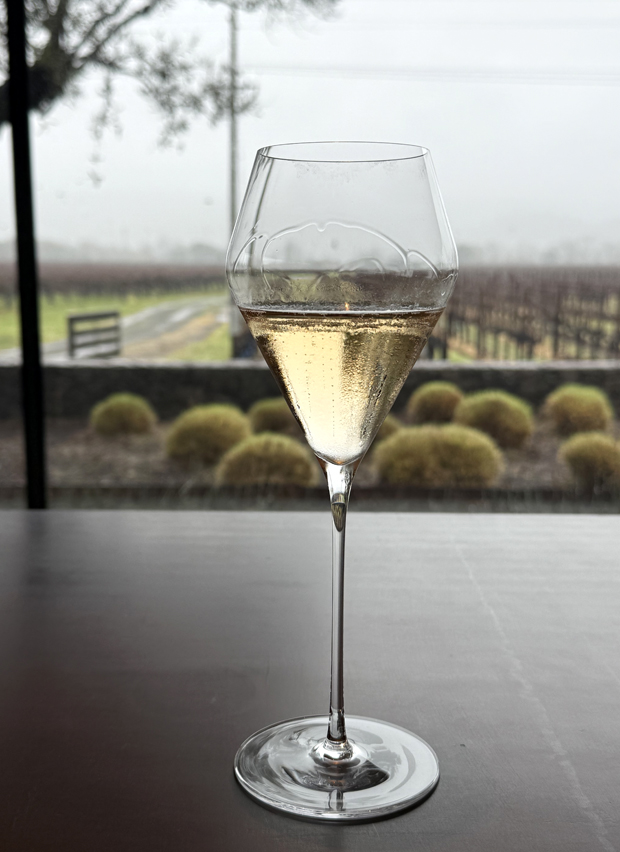
Q: What was the writing process like?
A: I didn’t know how to start, so I found a coach who teaches how to write memoirs, Meghan Davis Hill, who’s in Philadelphia. She was amazing. She told me to jot down all the important milestones in my life, half of which probably won’t make it into the book. My office was a mess with Post-It notes everywhere. We put them on a wall, then organized them into areas. Once that happens, you have an outline for the book.
Then, I started to write. I had to write a minimum of 30 minutes without stopping, every day, without lifting my pen off the paper. That was the rule. She said it’s more freeing when you write with a pen and paper. And my writing is horrible; it’s illegible. Chef Drew is the only person who can even read my writing after being with me for 25 years.
Then, I would go through it and type it into the computer. Meghan would read it and then interview me to get me to dig deeper, asking ‘What did this person’s eyes look like’ or ‘How did I feel’’ especially in the darker moments.
She and I never met in person until Cyrus physically opened, even though we Zoomed and talked every day for two years. When Cyrus did open, her husband surprised her with a trip out here to dine at the restaurant.
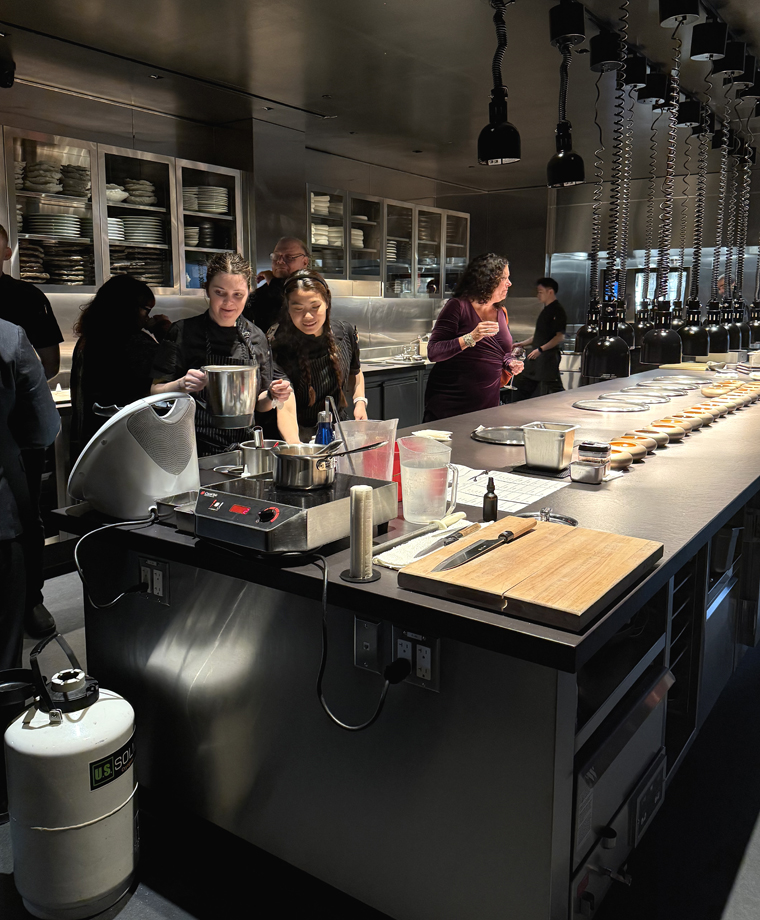
Q: What is harder – cooking or writing?
A: I know how to go in and organize a kitchen or plan a large party. But it was remarkably hard to get started on the book until I met her. Once I got past that, it was pretty easy. I have a really good memory, so I can remember things like it happened yesterday. The process was actually fun.
Q: Why did you choose a song to accompany every chapter?
A: Music is always playing in my head. The playlist in our kitchen is made up of a lot of these songs. They relate to what happens in each chapter. For the chapter on my acceptance to Cornell University, it’s The Tokens’ ‘The Lion Sleeps Tonight,’ bceause when I was at Cornell, my friend was in an a cappella group that sang that all the time. ‘Waiting for My Real Life to Begin’ by Colin Hay toward the end of the book is a song I listen to every day. It got me through a lot.
Q: Your dogs figure prominently in the book. So, you’re obviously a dog person, not a cat person?
A: I would love to have a cat, but I’ve never had one. I have had a lot of cats I’ve fallen in love with. But I never had a dog who would be okay with cats.
Q: You have an affinity for animals that have issues or that nobody else wants. Why is that?
A: If you’re a person with issues, you still have a voice. But these guys don’t have a voice. They can’t ask for anything. That just reaches a part of me.
Q: How large is your menagerie now?
A: I have Roxie, my dog, whom I found in a kennel with her jaw broken by a bad owner. She gets along with everyone. She is so well behaved. Lael has three dogs that I have joint custody with. I have some sheep, but I had to move them from the ranch to a safer place because of mountain lions. And I have two pigs, whom I just fed – Cosette, yes, named for Les Miserables, and Bettina, named for Lael’s best friend, Bettina Rouas of Angele restaurant in Napa. Her father was upset at first, so we had to explain to him that Bettina actually asked Lael to name a pig after her, that it was a compliment.
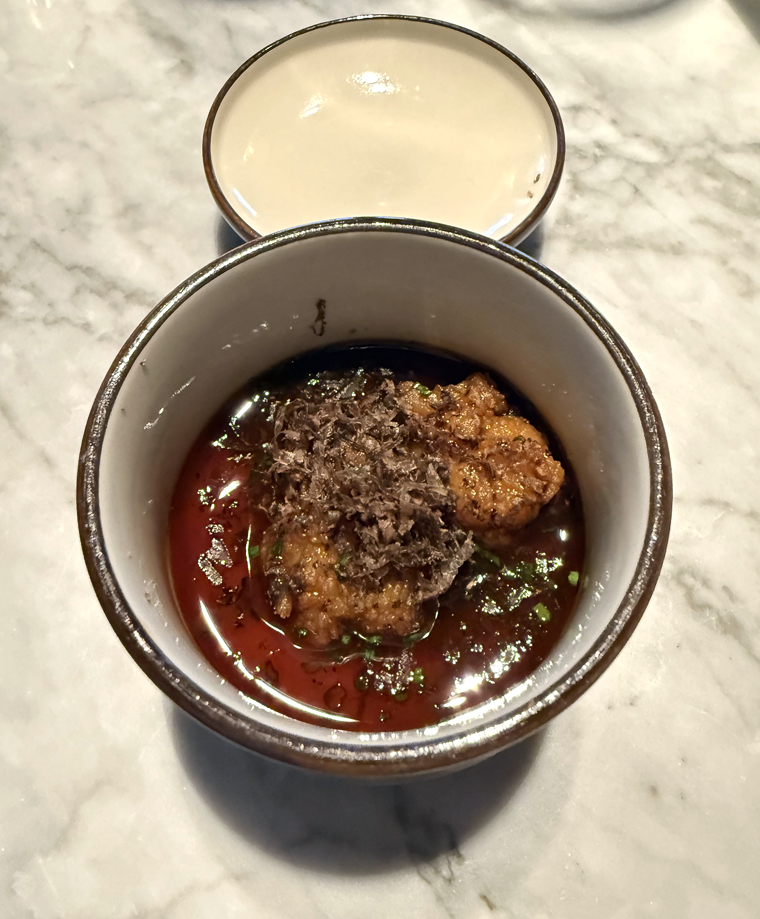
Q: In the book, you explain how you adopted a novel business model when you opened Cyrus in Geyserville. You hired fewer people, paid them more, and cross-trained them. How many employees do you have now, and how has it worked out?
A: We have 22 employees, including me and Nick. We’ve had little turnover, maybe losing two or three people whom we didn’t terminate but opted to go on to other things.
Everyone starts out making $65,000, with us paying half their medical insurance. They get one week of paid vacation after one year, and three weeks of paid vacation after three years. Everyone now makes more than $75,000 when you include tips. Even our dishwashers make that salary. In California, the law is that you can’t touch tips unless you touch the food. That’s why we cross-train, so everyone is involved in the food and can be included in the tips.
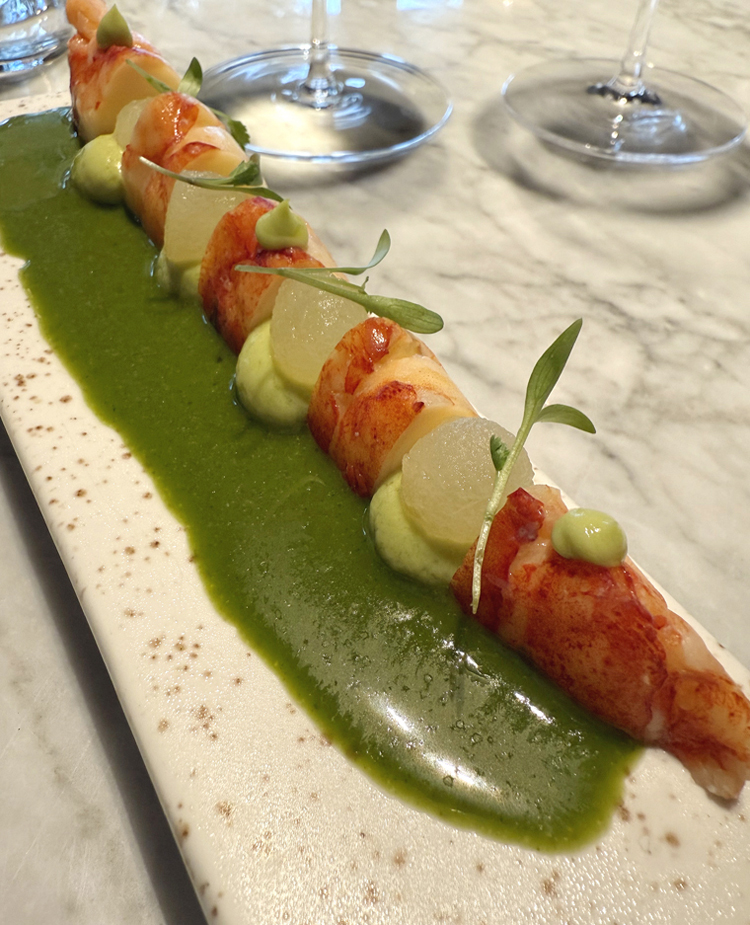
Q: Do you think this model could work at only certain types of restaurants?
A: It can work in all kinds of restaurants. It would probably work even better in quick-service restaurants because of the use of technology. You have to have motivation from the top, though. You have to say, ‘I don’t need this big pot, myself. I want to fix the dysfunction.’ It’s hard to step outside that box when you feel like you don’t have time, that you’re just trying to stay alive in the business. It’s a cash flow hit to pay everyone two weeks’ of pay when we close for break. A lot of places don’t have the cash to support the slow times. We were able to survive those times.
You have to have the long sight on this. You have to work it from the math side, and cut out the steps of service that aren’t essential. We don’t have tablecloths. It costs money to clean them, store them, and takes labor to change them. Instead, we have a gorgeous napkin that is oversized that is luxurious. I don’t make 20 candies like at the first Cyrus, Instead, I make one candy bar and it is delicious and makes you happy. I don’t have 10 breads made by two people, which then have to get thrown out at the end of day if they’re not eaten. Instead, I have one perfect bread that we give you with butter that we make. There’s a lot of waste in our business with a lot of unnecessary steps. I can serve table of four with four runners surrounding the table and dropping every course in unison. But what if I put the food on smaller plates on one tray for one server? Is your service any worse? I don’t think so.
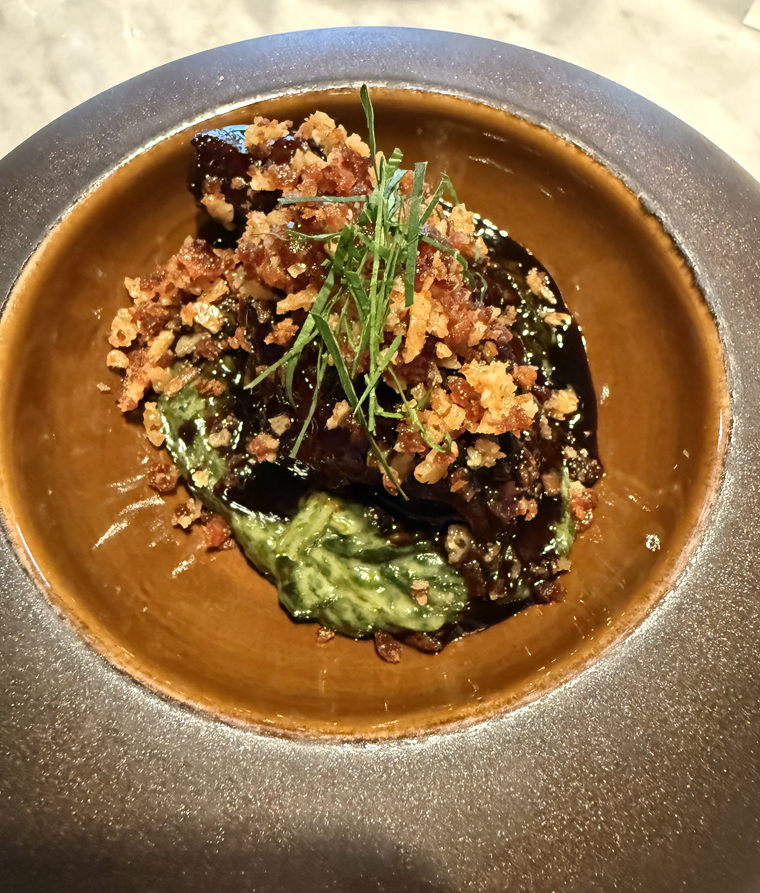
Q: If you could wave a magic wand, what would you most change about the restaurant industry?
A: I would change the level of importance of Michelin, the San Pellegrino awards, and anonymous critics. The anonymous ones have unchecked power and influence, and don’t tell you who they are. At the original Cyrus, I wrote Michelin back once, asking how do I improve. They said they don’t provide feedback. You don’t learn why a star is taken away, either. I think they should tell us how they make their decisions. They are very secretive. I don’t care if Michelin reads this. I’m going to cook my food. I’m not going to judge myself by what they say. I’m cooking better food with my team than I ever have. My guests seem pretty happy. So, bring it. It’s not the first time that I’ve taken a battle on.
Q: What do you think about how restaurant cooking has gone from blue-collar to rock-star status?
A: It’s hilarious. It’s dangerous. It’s weird. I think it is a skilled labor, but all this celebrity talk just speaks to how Americans love celebrities. But be careful, because there are a lot of people who aren’t great role models. We make dinner. That’s it.
Q: You still plan to add hotel rooms to Cyrus:
A: Yes, we’re going for the permits in a few weeks for six hotel rooms. Three rooms are already done, so we might have them available in the next 12 months.
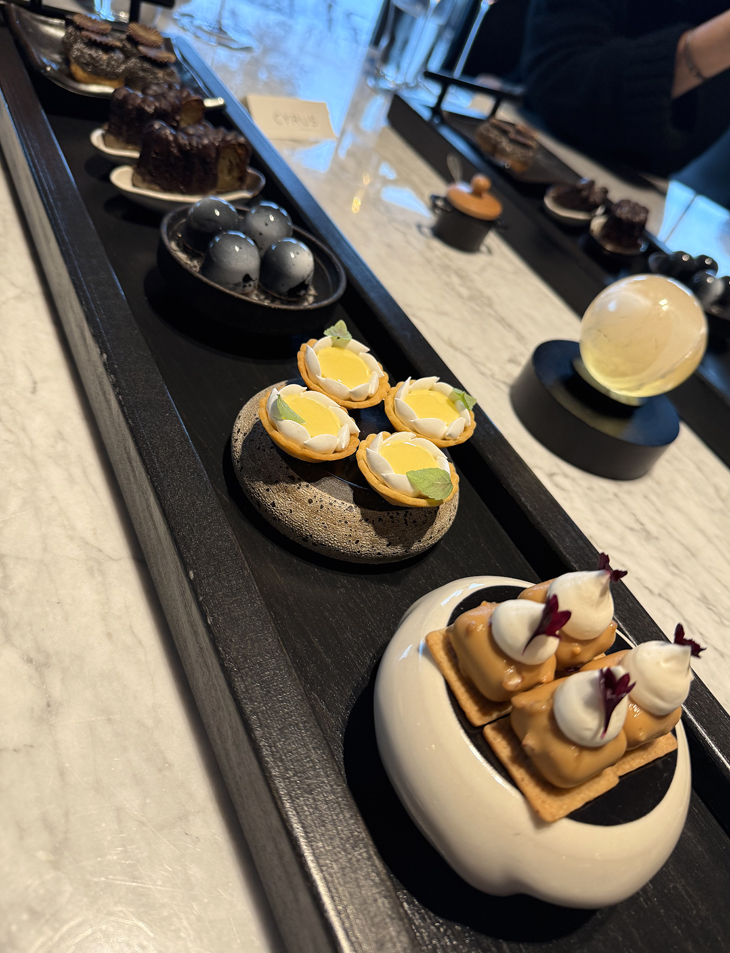
Q: Do you see “Culinary Leverage’’ as being a successor to Anthony Bourdain’s “Kitchen Confidential’’?
A: He had balls to write his book. Anthony was a great writer. I don’t consider myself a great writer. I would love people to look at the book as a way to expose things about chefs, about the business, and to maybe make some changes. If people put it in the same category as his book, I’d be honored.
Q: Will there be a “Culinary Leverage, Part II’’?
A: Wow, I didn’t expect that question. I have no plans for it. I could see doing another book, but from a dog’s perspective. Maybe a children’s book.
Q: Napster co-founder Sean Parker was famously going to be one of your main investors when you were working on opening the new Cyrus, but he ended up dropping out of the project to your disappointment. Has he been in to dine at the new Cyrus?
A: He has not. I haven’t heard from him in a long time. He’s welcome in anytime.
Q: In the movie version of your book, who would play Nick, Drew, and you?
A: For Nick, it would be Christopher Walken because he has a grace and sense of confidence. For Drew, it would be Brad Pitt because Brad has a quietness about him, but also humor. For me? Maybe Matthew McConaughey or Denzel Washington because I love their styles, and Denzel is aggressive and strong. Wait, I changed my mind. I’m going to pick Andy Garcia instead. I like his sense of humor and I love every movie I’ve ever seen him in.
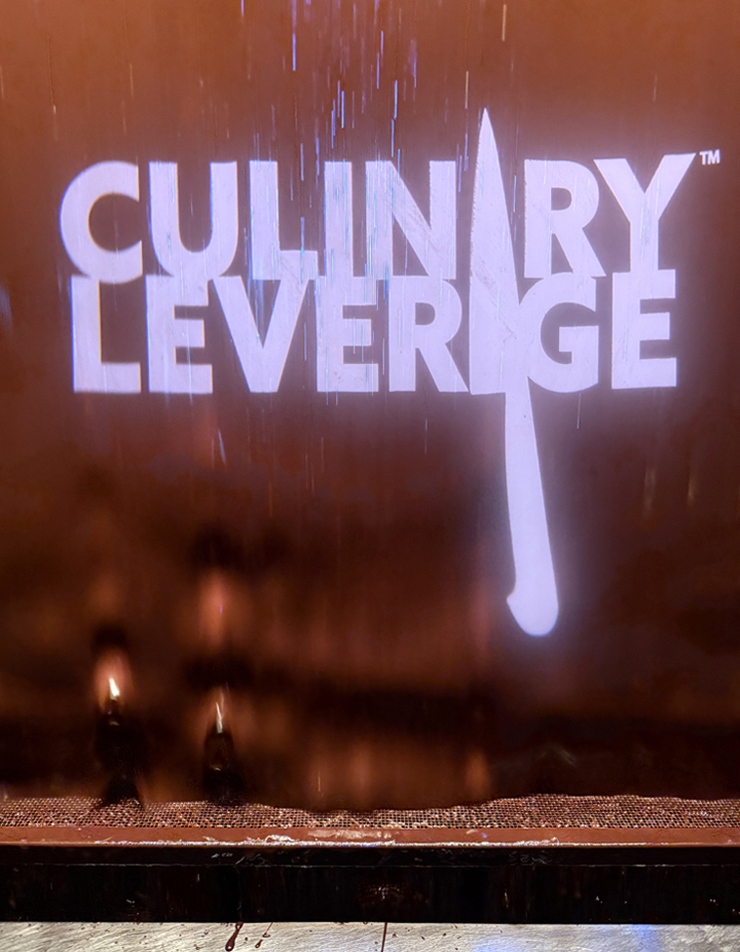
Q: Would the movie version be a comedy? Romance? Tragedy?
A: It would be more of a drama, but with dark comedy and a great soundtrack.
Q: The book is just days away from debuting to the public. How are you feeling about it?
A: Anxious because there are some topics in the book that people will ask about that are awkward. But I owe them those conversations. I’m also super excited because the book is out there. Honestly, it’s a proud moment.
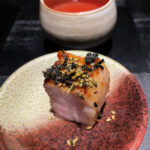
More: Dining at Cyrus

The book sounds like a good read. I put a calendar reminder to make an anniversary reservation. If I fail, we can always go to my favorite place to stop when I’m passing through: Diavola.

Hi Bob: It is a fascinating read. And I hope you do make it to Cyrus for your anniversary. It is quite the experience!